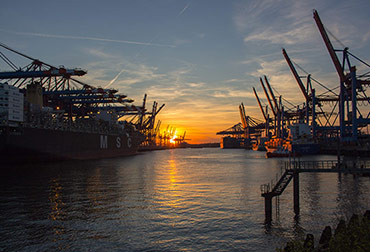Risk Management
POLYCORN INTERNATIONAL focuses on our core competences and optimizes our resources to achieve maximum productivity. POLYCORN INTERNATIONAL is always trying to take advantage of our expertise and thereby minimize our own expenses.
Our finance team consists of highly qualified and experienced professionals who have access to physical oil market in Bangladesh. They constantly monitor all the major factors that affect oil market in order to provide our clients with vital up-to-date information.
To cope with fluctuating conditions in the shipping market, POLYCORN INTERNATIONAL brings assurance to clients by providing up-to-date bunker risk management services. POLYCORN INTERNATIONAL offers a range of hedging products that can be specifically customized and tailored for each customer and situation.
POLYCORN INTERNATIONAL's extensive and expansive knowledge in oil, shipping and finance industries let our customers better manage risks exposure at all levels of operation. With contract in place, our customers are assured of security and stability, even in volatile market conditions.
With our extensive experience and proven track record, POLYCORN INTERNATIONAL is consistently in the utmost position to analyze market conditions and help our clients derive the best strategies in risk management.
POLYCORN INTERNATIONAL understands that the most volatile and unpredictable item in shipping accounts is fuel costs. Between 40 to 50 per cent of costs can come from bunkering in the running of a ship; thus any price changes can have major impacts on bottom lines.
By working closely with a broad variety of customers in the shipping industry, we are successful in providing Risk management services with day-to-day follow-up on hedging decisions.



